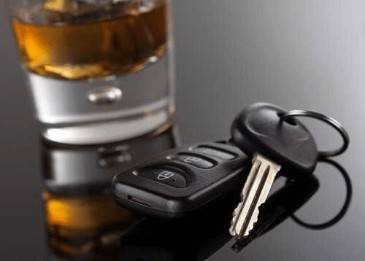Over the past decade or so, DUI checkpoints have become more common across the United States.
While some states have outlawed their use, they are prevalent in Colorado and knowing how to handle them can make your ride much easier. Be careful and drive safely this Fourth of July, for yourself and your neighbors in Colorado Springs.
How Does a DUI Checkpoint Work?
 A DUI checkpoint, sometimes also called a “mobile checkpoint” or roadblock, is a police traffic stop that is general rather than connected to a specific suspicion or ongoing danger. The locations are set up temporarily and positioned in a way for optimal visibility and traffic flow. While driving through a checkpoint, each driver is briefly interviewed to detect any signs of intoxication. Those who seem suspicious are detained and subjected to a sobriety test.
A DUI checkpoint, sometimes also called a “mobile checkpoint” or roadblock, is a police traffic stop that is general rather than connected to a specific suspicion or ongoing danger. The locations are set up temporarily and positioned in a way for optimal visibility and traffic flow. While driving through a checkpoint, each driver is briefly interviewed to detect any signs of intoxication. Those who seem suspicious are detained and subjected to a sobriety test.
Drivers in Colorado are considered to have given “express consent” to be tested for blood alcohol content by operating a vehicle. This means you cannot refuse a sobriety test without violating state law. Refusing a BAC test can result in you having to use an ignition interlock system for up to two years, and may get you designated as a “persistent drunk driver.”
Are DUI Checkpoints Legal?
The United States and Colorado Constitutions require that police have probable cause for a search or seizure. In Michigan Department of State Police vs. Sitz, the Supreme Court of the United States ruled that DUI checkpoints are seizures for constitutional purposes but that the seizure is not in violation of the 4th amendment. The Supreme Court held that the intrusion presented by the stops is minimal and that the stops themselves are indistinguishable from prior decisions in which police stops and seizures were upheld. See generally United States v. Martinez-Fuente, 428 US 543 (1976). Ultimately, this means that DUI checkpoints are legal and police are permitted to set up these checkpoints to combat impaired drivers.
The National Highway Safety Transportation Board has issued guidelines that police have to use for these checkpoints, however, so there can be issues if officers do not follow these rules.
Among them is the fact that police must publicize the checkpoints prior to setting them up. That means anyone can find out the locations of any DUI checkpoints beforehand. This is on purpose; visibility has been shown to reduce DUIs because of the fear of getting caught. Holidays are especially dangerous for DUIs, since there are more cars on the road and many people celebrate by drinking.
DUI checkpoints are especially common at times like the Fourth of July, so drink responsibly, drive carefully, and avoid the expense and danger of drunk driving.
If you have been arrested and charged with drunk driving, then call the DUI attorneys in Colorado Springs at The Bussey Law Firm, P.C., at (719) 475-2555. We can discuss your case and talk about your options, either fighting the charge or trying to reduce your penalties.
